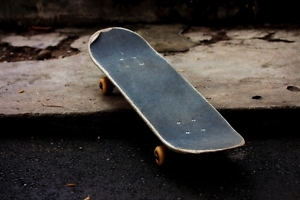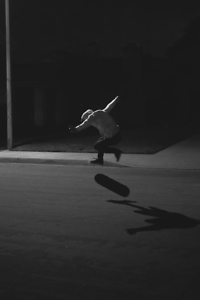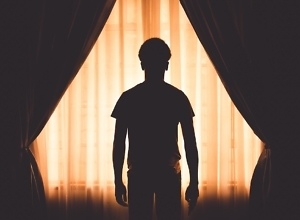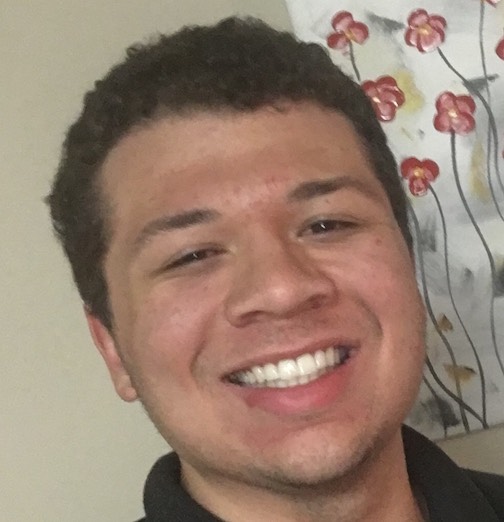Encounter with a Future Killer
I knew nothing about this person I once called a friend
Philip trailed behind me, rubber wheels of his skateboard grinding over the fresh asphalt. I can recall the weather: humid, clouded-over, a suggestive Cumberland breeze. He rode a Baker board, Independent trucks, wheel bearings turned loose for added glide on the turns. In other words, it was a real board, something I was incredibly jealous of. I rode a Walmart board. It was purchased for around $25, and it struggled to move more than 15 feet without leg drive. Consequently, I worked up a marvelous sweat, pushing like Sisyphus against the road.

We had ventured down from my apartment complex, perched like a condor above a middling business park, into a collection of gray and brown office buildings. The venue for the day was a drug-testing facility, seemingly abandoned, though it had once been viciously defended by a sprightly old nursing assistant. The concrete there was remarkably smooth, all supple and crackling granite. I was too embarrassed to let Philip see my lack of skill firsthand, so I told him to give me his phone to take video. He would do the tricks, and I would follow, getting the right angles and editing on the fly. We prepared to get a clip.
I sat on a curb, unbuttoning my big-box flannel jacket. He stood against an elevated barrier, fiddling with his wheels and chatting about the approaching autumn. He was moving to Massachusetts in a month’s time and appeared excited. He talked in vague terms about his prospects: “soccer scholarship,” “gifted and talented,” “military program.” I never knew much about Philip’s home life, and it never dawned on me to ask. Even in the eighth grade, I knew that certain friends belonged to school, and certain friends you took home with you in a satchel. Philip was firmly the former. We had known one another for two years, riding the same bus and kicking around in the same group of miscreants. We’d stand in a circle next to the kickball field, busting chops and passing time, and it was the same in the lunchroom or the back of the bus. But Philip had a strange sort of monkish serenity, like Merton on holiday. What went on with Philip didn’t apply to me, and it very much didn’t have to.

So it was a welcome surprise that we found ourselves together, away from the classroom, on that warm day in June. Within the hour, we were exhausted, but in the lovely way skateboarding teases and energizes we weren’t truly tired. He had done one trick of note, a backside 180, which was a little timid but cleared a polygonal manhole cover all the same. I tried my hardest to perform an ollie, which, for the four years I skated regularly, remained outside my grasp.
The clouds began to clear, leaving streaks of claw-mark blue in a flat gray sky. He rode around a corner, announcing that he had to piss, leaving me to take the blame if an officer cruised past. I threw my board against a wall, slouched against the stones, and thought about the upcoming semester. My closest friend was going to an elective program in a school seven miles across town. My relationship with my mother had hit a deep well, far too early for any child to experience. Another close friend went to a separate elective course, six miles in a different direction, and my own behavior had become increasingly erratic and bizarre. Pangs of self-pity bubbled over, and I wondered what I did to deserve this. I would soon be alone even on the bus. Everything, I believed, was leaving, streaming past in a mocking blur. I was alone.
Feeling angry, I stood up. The heat rose, a vague smell of mud creeping through the streets. I wiped my forehead, flicking the sweat into the air. Philip had only been gone for a minute or so, but I wanted to get another session started. I hopped on the board and turned the corner to see him fastening his pants. He looked at me, smiling lightly.
“Have you heard the new single?”
”What single?”
”The new Tyler. It’s crazy.”
We were united by our love for Odd Future, a hip-hop collective that appealed to all manner of alienated, Facebook-crazed teenagers at the time. I told him to show it to me, but as I dismounted the board I tripped on a shoelace. I yelled some expletive and looked back sheepishly to see whether he saw. He stood leaning on his thin back leg, running a hand under his sweatshirt. He squinted, expressionless, the heaving of his chest barely visible. His board was tilted upward beneath his front foot. I thought little of this, squatting on one knee to tie the shoe. I stood up and turned to face him but was met by the same strange gaze. The board rocked lightly under his foot, clipping against a dismantled branch, while a tree frog began to croak in the canopy above. I swore I saw a spectral smile emerge.
Whenever I relate this to somebody, they inevitably ask if I was afraid, if he did anything suspicious before or after, or if he ever struck me as a psychopath. Time changes perspective, but I always admit that, until very recently, it never bothered me. He was simply standing there, human as any human could be. In a way, only a human could do what he later went on to do.
Perhaps the trauma of that evening a few months later, when Clarksville became a footnote in the grisly story, is when it began to set in. An obsession that would become full-blown OCD started to grow as I struggled to understand what happened. I sacrificed my grades, my prospects, my social life in the quest of finding out what went wrong and who Philip Chism really was.
I scoured every available source. I knew nothing about Danvers, Massachusetts, about Colleen Ritzer, or this person I once called a friend. But I soon knew Ritzer’s final words, the path Philip took to dispose of her corpse, and the message he left scrawled nearby. I soon knew that tears didn’t process anything. In the news video, he looked radically different than what I remembered. He had grown 3 inches, reaching an improbable 6-foot-4, and he wore an alien look on his features. It would be offensive to Ritzer’s memory to say that I had seen it before, but perhaps I had.

I watched every courtroom appearance, analyzing his changing hairstyles and the shaky, resolved look on his face. This was no crime of the century. It was too horrible; he was too hollow; and there was nothing to analyze. He never broke character, uttered an audible word, or insulted Colleen Ritzer’s memory.
The weeks after the murder were filled with bad jokes and imaginary recollections. People I had never seen before claimed him as a friend, while publication after publication published interviews and tell-alls. The high-water mark was when I heard the word “Clarksville” on a national news program. But as quickly as the drama arrived, it disappeared. Ritzer was laid to rest, and Philip was found guilty. The story fell into oblivion. Even here, a football field from where he went to school, his name has been forgotten. I meet current students and new teachers quite often, but none of them know Philip. He was born, wounded a hundred lives, and disappeared.
This may be fitting. But having known Philip, and having studied up and down what happened that day in Danvers, I don’t feel that way. Philip wasn’t after notoriety or fame. He lost his mind and never found it again. Here, In Cold Blood finds its logical conclusion, where the philosophy of alienation meets an empty resolution and the bestselling author himself goes insane.
We know from the start what will inevitably occur. We search in vain for revelatory details, hoping for a time when we can discuss it without the omnipresence of grief. But the more details emerge, the more we find ourselves disgusted. A light snuffed out in a moment of meaningless, frozen horror. In a year’s time, only those directly touched by the crime will remember it. But we should all remember, if only to see how pointless it all is. To me, Philip was an instruction, a brutal and appalling lecture. Yet I still don’t understand the material.

Copyright (c) 2020 by Alijah Poindexter. All rights reserved. Alijah Poindexter is a senior at Austin Peay State University, where he is working towards a B.B.A in business marketing. A Clarksville native, he focuses on creative nonfiction, from food writing to pop culture takedowns, and spends most of his time reading, writing, and complaining. He is currently working on a collection of essays.


